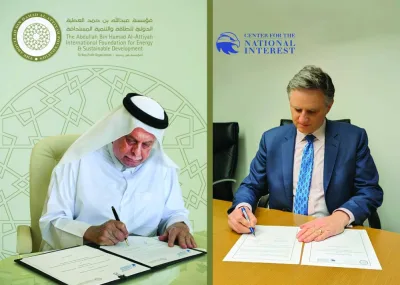An overarching issue as to each measure is the role of the individual in society when the existence of the society or the survival of its citizenry is at stake. In these circumstances, how are we to think about individual rights, such as the right to gather or engage in work? A rights-based focus may seem particularly selfish when healthcare workers, first responders, and food providers are performing essential services at risk to their own lives. Instead, should we not focus on each person’s duty to remain largely removed from another?
The rights framework, however, is still an appropriate approach and one from which we should not run.
An understanding of the relevant legal framework in Qatar will enable all to appreciate state action and its relationship to the individual. Under the Constitution of Qatar, the state has the authority to secure the country. Article 5 requires the State of Qatar to “preserve” its “security and stability.” Article 19 requires the state to “maintain the pillars of the society and ensure security.” These provisions, for the most part, focus more on overall territorial security. Yet, Covid-19 knows no bounds and is akin to the unseen enemy.
More on point is Article 23, which requires that the state “foster public health,” provide means to prevent “diseases and epidemics” and provide for their cure “in accordance with the law.” Such an obligation is consistent with a major United Nations treaty to which Qatar is a party, the International Covenant on Economic, Social and Cultural Rights (ICESCR).
Under Article 12(1) of the ICESCR, the state recognises “the right of everyone to the enjoyment of the highest attainable standard of physical and mental health.” Due to its resources and planning, Qatar has been at the forefront of ensuring access to healthcare to address Covid-19 ailments.
A rights-based focus may begin with the understanding of the state’s obligation to provide medical care to and secure a safe environment for each person within the state. Yet it involves more. The critical issue is, as one would expect, the means to such security. Other rights under the Constitution as well as those under a second major UN human rights treaty to which Qatar is a party, the International Covenant on Civil and Political Rights (ICCPR), could and likely will come into play.
Today’s situation is dynamic, affected by unknown scientific and societal variables. The environment of uncertainty makes it difficult to draw clear lines in every instance. Coupled with that is the fact that legal scholars and philosophers have spent lifetimes examining how to define and address the balance between individual rights and societal demands. How the many freedoms and duties interact during a pandemic may be one of the most interesting and challenging legal issues of our time, or at least over the coming few years.
* Dr Susan L Karamanian is Dean of the College of Law at Hamad Bin Khalifa University (HBKU).
(This article is submitted on behalf of the author by the HBKU Communications Directorate. The views expressed are the author’s own and do not necessarily reflect the University’s official stance).
Innovating Today, Shaping Tomorrow
Hamad Bin Khalifa University (HBKU), a member of Qatar Foundation for Education, Science, and Community Development (QF), was founded in 2010 as a research-intensive university that acts as a catalyst for transformative change in Qatar and the region while having global impact. Located in Education City, HBKU is committed to building and cultivating human capacity through an enriching academic experience, innovative ecosystem, and unique partnerships. HBKU delivers multidisciplinary undergraduate and graduate programmes through its colleges, and provides opportunities for research and scholarship through its institutes and centres. For more information about HBKU, visit www.hbku.edu.qa



